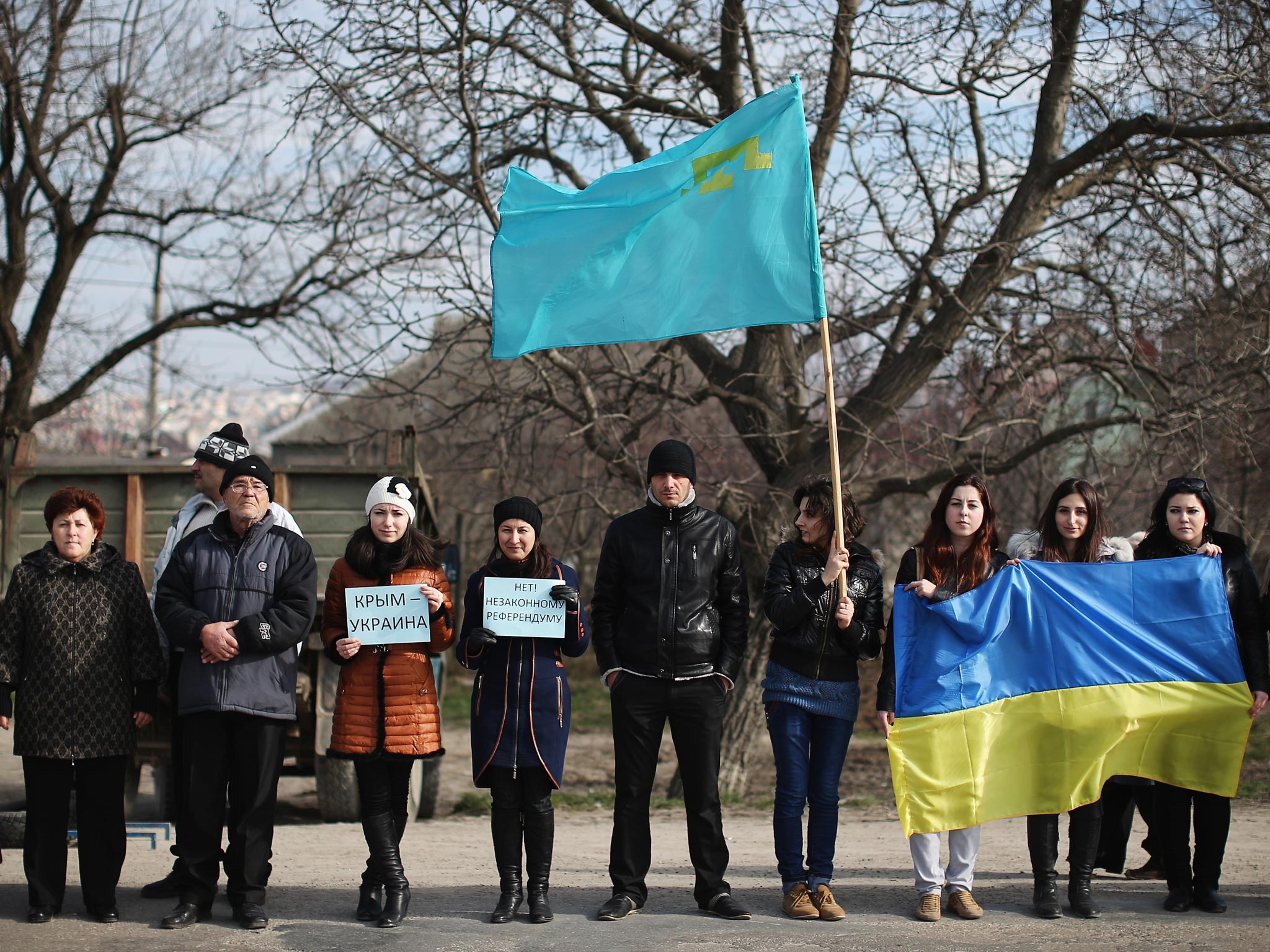Ukraine crisis: Decision time for Crimea in referendum which could change the complexion of Europe
As the Ukrainian territory prepares for a referendum that will decide whether it will return to Moscow’s control, the Russian Foreign Minister declares that it matters more than the Falklands do to Britain

The Crimean peninsula is far more important to the Russians than the Falkland Islands are to Britain, Moscow’s foreign minister declared as talks in London aimed at defusing the Ukraine crisis ended without a breakthrough.
The talks failed to find common ground as Crimea gears up for a referendum on whether to secede from the Ukraine and return to Russian control.
Sergei Lavrov insisted that his government would respect the result of tomorrow’s referendum. He was speaking after a five-hour meeting with the US Secretary of State, John Kerry, which Mr Lavrov admitted had failed to agree on a way out of the crisis.
Western powers have dismissed the ballot as unconstitutional and part of an attempt by Moscow to gain spurious legal cover for the annexation of Crimea. They have indicated that any attempt to legitimise its result would lead to stronger sanctions against Russia and its leadership. But Mr Lavrov cited Britain’s attachment to the Falklands, which the UK won back from Argentinian occupiers following a brief war in 1982, as evidence of Moscow’s long-standing commitment to Crimea.
He said the situation on the peninsula “cannot be examined without historical contexts”, and added: “Everybody understands that Crimea for Russia is something really important .... It means immeasurably more for Russia than the Falklands means for the United Kingdom.”
Speaking through an interpreter, Mr Lavrov argued that tomorrow’s referendum was an instance of the United Nations principle of self-determination in action.
In a separate press conference, Mr Kerry said it would amount to a “back-door annexation” of Crimea if the Russian parliament ratified the result of the “illegitimate” referendum.
Mr Kerry accused his Russian counterpart of rejecting a series of “constructive ideas” put on the table, about how to ease tensions.

Rarely has a day-after scenario mattered as much; it could change the complexion of Europe, if not of the wider world. The day itself – Sunday, when voters in Crimea are due to take part in a referendum about the future of the peninsula – has acquired a momentum of its own, “a steamroller racing downhill”, as it has been described by one Russian commentator.
The overwhelming odds are that a majority, perhaps an overwhelming majority, of the electorate will vote for reunification with Russia. Crimea was administratively part of Russia for two centuries and has been part of Ukraine for only 60 years. Some 60 per cent of the population are Russian-speakers, with Ukrainian-speakers and Tatars making up the rest. Even before the intense propaganda of the past two weeks, there was strong pro-Russian sentiment in Crimea, where a large number of Russian service personnel settled after the Soviet Union’s collapse.
The questions on the ballot paper are: “Are you in favour of the Autonomous Republic of Crimea reuniting with Russia as a constituent part of the Russian Federation?” And: “Are you in favour of restoring the Constitution of the Republic of Crimea of 1992 and of Crimea’s status as part of Ukraine?” The middle way of greater autonomy within Ukraine is not an option.
Is there a possibility that the voters could spring a surprise? A slender one. If, for instance, Ukrainian speakers and Tatars turn out in large numbers; if the fiercely anti-Russian Tatars turn out to be more numerous than the estimated 12 per cent of the population – which is possible, given their comparatively high birth rate and the numbers still returning from exile; if Crimea’s Russian-speakers turn out to have developed a greater sense of allegiance to independent Ukraine than is generally believed, and if the clumsiness of the propaganda raising the spectre of fascism rebounds, then there is a very slight chance that Crimea will reject reunification with Russia and the immediate crisis be averted.
Whether Russia would accept the result is a different matter. Many Western experts on the region would say not: the prevailing view is that Moscow’s whole stance since the ousting of Viktor Yanukovych as Ukrainian president three weeks ago has been designed to speed the “recovery” of Crimea.
Join our commenting forum
Join thought-provoking conversations, follow other Independent readers and see their replies
Comments
Bookmark popover
Removed from bookmarks